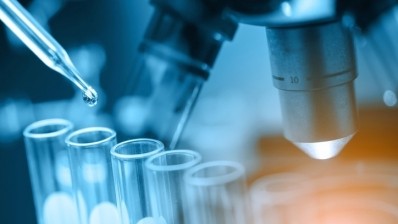Circular society: Kao to further research into marine plastic recycling through agreement with Wakayama City
![Kao furthers research into the processing and recycling of marine plastic. [GettyImages]](/var/wrbm_gb_food_pharma/storage/images/_aliases/wrbm_large/publications/cosmetics/cosmeticsdesign-asia.com/headlines/packaging-design/kao-to-further-research-into-marine-plastic-recycling-through-agreement-with-wakayama-city/11899687-1-eng-GB/Kao-to-further-research-into-marine-plastic-recycling-through-agreement-with-Wakayama-City.jpg)
The Japanese personal care major began operating a manufacturing plant in Wakayama City in 1944, where it produces various products for its fabric and home care, beauty care and chemical businesses.
The Wakayama Complex, which includes the Wakayama Research Laboratories, is currently Kao's largest business site in Japan.
Furthermore, Wakayama City was selected as one of the SDGs Future Cities by the Cabinet Office of Japan in 2019.
As per the agreement, Kao will use its research and development resources to support the sustainable development of the local community.
Chiefly, the company aims to further its research on waste reduction with a focus on marine plastic waste.
“Recognising its responsibility as an enterprise that provides products which people use on a regular basis in their daily lives, the Kao Group takes active steps to reduce the environmental footprint of its products throughout the entirety of the product lifecycle,” said Hiromi Nambu, Material Science Research Laboratory Senior Director and Recycling Science Research Centre Director, Kao Corporation.
With this project, the two parties aim to implement RecyCreation, an upcycling initiative meant to create new value for recycling materials and achieve a circular society.
According to the company, it plans to collect marine plastic waste collected in Wakayama City and process it into recycled plastic.
“Various uses for the recycled plastic will be examined, such as reusing it in tables and chairs at facilities along the ocean shore and as a road strengthening agent in the cycling route that runs along the ocean,” said Nambu.
He added: “In addition, Kao will use the wide range of research and technology expertise it possesses and begin activities to enrich the ocean environment.”
This project will also give the company a chance to research the recycling of marine plastic.
“I think that the knowledge about marine plastic waste and recycling obtained through this project in collaboration with Wakayama City can be applied not only to cosmetics but also to the research and development of Kao's overall packaging technology,” said Nambu.
Nambu noted that there are significant challenges the company has overcome when it comes to recycling marine plastic waste.
Firstly, there is the question of sanitation as marine plastics may contain spoilt contents as well as strong smell and stains.
These plastics are also likely to have deteriorated due to ultraviolet rays and seawater to various degrees.
Lastly, there is the issue of collection and sorting of plastic waste in an efficient manner.
“There’s a non-quantitative accumulation on the coast and mixing of various objects such as wood, glass, and metal other than plastic waste. Also, there’s the mixing of various plastics and complexity of distinguishing types,” said Nambu.
Community development
As part of its efforts to support the local community and work towards Sustainable Development Goals in Wakayama City, Kao intends to conduct various initiatives.
According to Nambu, these activities will centre around children as part of the effort to raise awareness of sustainability among the future generation.
For instance, Kao will conduct an educational program, first at elementary schools in Wakayama City, using plastic waste and other problems as lesson materials.
“While testing this program from the perspective of resolving issues in local communities and the wider society, Kao will examine how to expand the program into city-wide activities,” said Nambu.


![Meiyume has identified aluminium as a key material for sustainability [Meiyume]](/var/wrbm_gb_food_pharma/storage/images/_aliases/wrbm_medium/publications/cosmetics/cosmeticsdesign-asia.com/headlines/packaging-design/meiyume-identifies-aluminium-as-key-material-for-sustainable-packaging-solutions/11992958-1-eng-GB/Meiyume-identifies-aluminium-as-key-material-for-sustainable-packaging-solutions.jpg)
![Kao has piloted a beauty counselling service in Japan based on RNA monitoring technology it developed last year. [Getty Images]](/var/wrbm_gb_food_pharma/storage/images/_aliases/wrbm_medium/publications/cosmetics/cosmeticsdesign-asia.com/headlines/brand-innovation/kao-pilots-skin-analysis-service-based-on-its-non-invasive-rna-monitoring-tech/11980910-1-eng-GB/Kao-pilots-skin-analysis-service-based-on-its-non-invasive-RNA-monitoring-tech.jpg)

![Indus Valley is working to corner 30% of India's online premium boxed hair colour market. [Indus Valley]](/var/wrbm_gb_food_pharma/storage/images/_aliases/wrbm_tiny/publications/cosmetics/cosmeticsdesign-asia.com/article/2024/07/26/indus-valley-aims-to-secure-30-of-india-s-online-premium-hair-colour-market-with-organic-offerings/17594932-5-eng-GB/Indus-Valley-aims-to-secure-30-of-India-s-online-premium-hair-colour-market-with-organic-offerings.jpg)
![[Getty Images]](/var/wrbm_gb_food_pharma/storage/images/_aliases/wrbm_tiny/publications/cosmetics/cosmeticsdesign-asia.com/china/china-focus-latest-developments-in-china-s-booming-beauty-market25/17606695-1-eng-GB/China-focus-Latest-developments-in-China-s-booming-beauty-market.jpg)
![Kosé has launched makeup brand Visée in Singapore as part of plans to reinforce its position in SEA. [Visée]](/var/wrbm_gb_food_pharma/storage/images/_aliases/wrbm_tiny/publications/cosmetics/cosmeticsdesign-asia.com/headlines/business-financial/visee-singapore-kose-aims-to-enhance-brand-visibility-in-sea-with-new-launch/17587264-1-eng-GB/Visee-Singapore-Kose-aims-to-enhance-brand-visibility-in-SEA-with-new-launch.jpg)
![ble C&C is set on reinforcing its competitiveness in China’s beauty market. [Missha]](/var/wrbm_gb_food_pharma/storage/images/_aliases/wrbm_tiny/publications/cosmetics/cosmeticsdesign-asia.com/headlines/business-financial/able-c-c-aims-to-strengthen-competitiveness-in-china-through-online-expansion-kol-collabs/17591626-1-eng-GB/Able-C-C-aims-to-strengthen-competitiveness-in-China-through-online-expansion-KOL-collabs.jpg)

![LG H&H genetic study says 23 genetic regions affect natural skin tone. [Getty Images]](/var/wrbm_gb_food_pharma/storage/images/_aliases/wrbm_tiny/publications/cosmetics/cosmeticsdesign-asia.com/article/2024/07/23/lg-h-h-discovery-of-genetic-skin-tone-factors-in-east-asians-potentially-key-to-skin-radiance-developments/17587210-1-eng-GB/LG-H-H-discovery-of-genetic-skin-tone-factors-in-East-Asians-potentially-key-to-skin-radiance-developments.jpg)

![DR.CI:LABO expects brand-supplier partnerships gain more public prominence as consumers interest in skin care grows online. [Dr.Ci:Labo]](/var/wrbm_gb_food_pharma/storage/images/_aliases/wrbm_tiny/publications/cosmetics/cosmeticsdesign-asia.com/article/2024/07/22/brand-supplier-partnerships-will-come-to-the-fore-amid-the-online-skin-care-landscape-dr.ci-labo/17576755-1-eng-GB/Brand-supplier-partnerships-will-come-to-the-fore-amid-the-online-skin-care-landscape-DR.CI-LABO.png)


